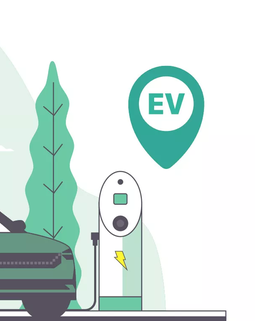Fiji’s automotive market is in a transformative phase, driven by rising consumer demand, government initiatives, and an increasing awareness of sustainable transportation solutions. As the nation continues to modernize, the automotive industry faces both significant opportunities and challenges. This article examines the current state of Fiji’s automotive market, highlighting key trends, challenges, and the potential for future growth in this Pacific Island nation.
Market Trends: A Shift Towards Modernization and Sustainability
The Fijian automotive market has experienced steady growth over the past few years, with a notable shift towards more modern and environmentally friendly vehicles. This trend is influenced by a growing middle class, increased urbanization, and a heightened awareness of environmental issues. Consumers in Fiji are becoming more inclined to invest in vehicles that offer better fuel efficiency, lower emissions, and advanced technology features.
Electric vehicles (EVs) and hybrid cars, although still in their early stages of adoption, are gaining attention as the Fijian government promotes sustainable transportation. Initiatives such as tax incentives for EV imports and investment in charging infrastructure signal a commitment to reducing the nation’s carbon footprint and dependency on fossil fuels.
Challenges: Infrastructure, Import Dependency, and Market Constraints
Despite the positive trends, Fiji’s automotive market faces several challenges that could hinder its growth. One of the primary obstacles is the lack of robust infrastructure, particularly in terms of road quality and availability of charging stations for electric vehicles. The country's geographic spread across numerous islands also presents logistical challenges in terms of vehicle distribution and maintenance services.
Another significant challenge is Fiji’s heavy reliance on imported vehicles and automotive parts. This dependency makes the market vulnerable to global supply chain disruptions and fluctuations in exchange rates, which can drive up costs for consumers. Additionally, the high import duties and taxes on vehicles can make owning a car a costly endeavor for many Fijians, limiting market expansion.
The lack of local automotive manufacturing also means that Fiji’s market is dependent on the availability of foreign models, which may not always be tailored to the specific needs of the local population. This issue is compounded by the limited availability of affordable financing options, which can restrict access to newer, more efficient vehicles for many consumers.
Government Initiatives: Supporting Sustainable Growth
The Fijian government has recognized the importance of a sustainable and modern transportation system in supporting the country’s broader economic and environmental goals. To this end, various policies and initiatives have been introduced to encourage the adoption of more environmentally friendly vehicles. These include reducing import taxes on electric and hybrid vehicles and investing in the necessary infrastructure to support their use.
In addition to promoting green vehicles, the government is also focused on improving road infrastructure and public transportation systems. These efforts aim to ease traffic congestion, reduce emissions, and make transportation more accessible and efficient for all Fijians. By creating a more favorable environment for automotive growth, the government is laying the groundwork for a more sustainable and resilient automotive market in Fiji.
Future Outlook: Opportunities for Growth and Innovation
Looking ahead, Fiji’s automotive market is poised for continued growth, driven by increasing consumer demand, government support, and a gradual shift towards more sustainable transportation options. However, realizing this potential will require overcoming the challenges of infrastructure development, reducing import dependency, and expanding access to affordable financing.
There is also significant potential for innovation within the market. As global trends continue to evolve, Fiji could benefit from the adoption of smart vehicle technologies, such as connected and autonomous vehicles, which could improve road safety and efficiency. Additionally, the development of local industries related to automotive services, such as repair, maintenance, and parts manufacturing, could help reduce the country’s reliance on imports and create new economic opportunities.
Conclusion: Navigating the Road Ahead
Fiji’s automotive market is at a critical juncture, with significant opportunities for growth and development on the horizon. By addressing the current challenges and continuing to support sustainable transportation initiatives, Fiji can build a modern and resilient automotive industry that contributes to the nation’s economic prosperity and environmental sustainability. As the market continues to evolve, both the government and private sector will need to work together to ensure that Fiji’s automotive future is bright and sustainable.





